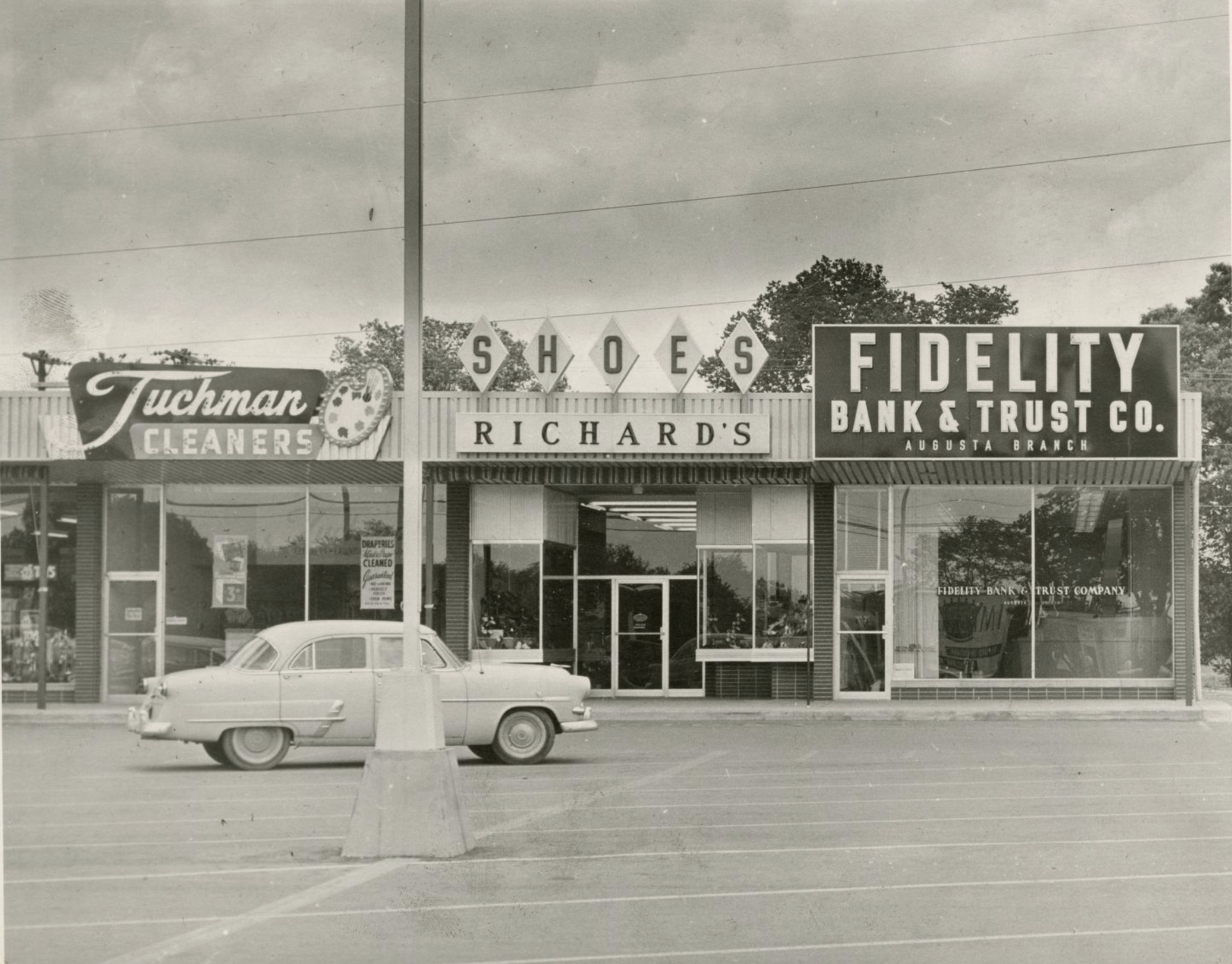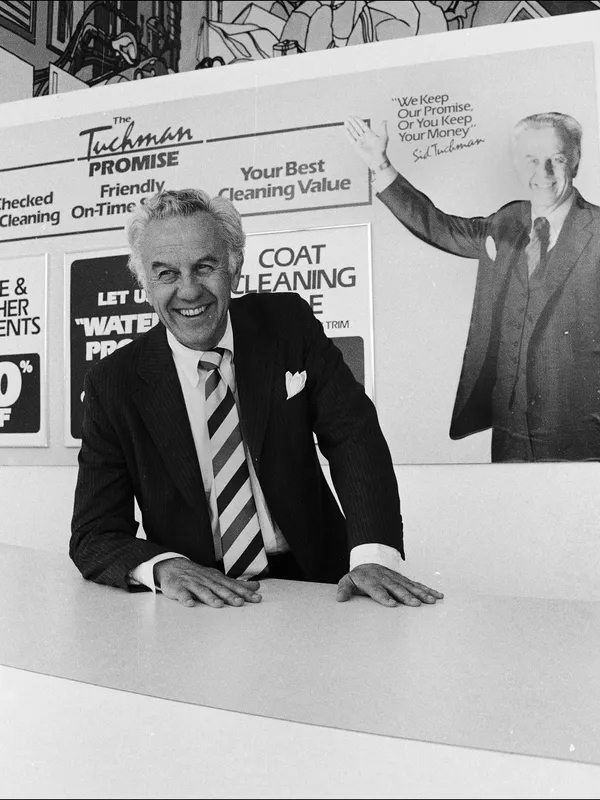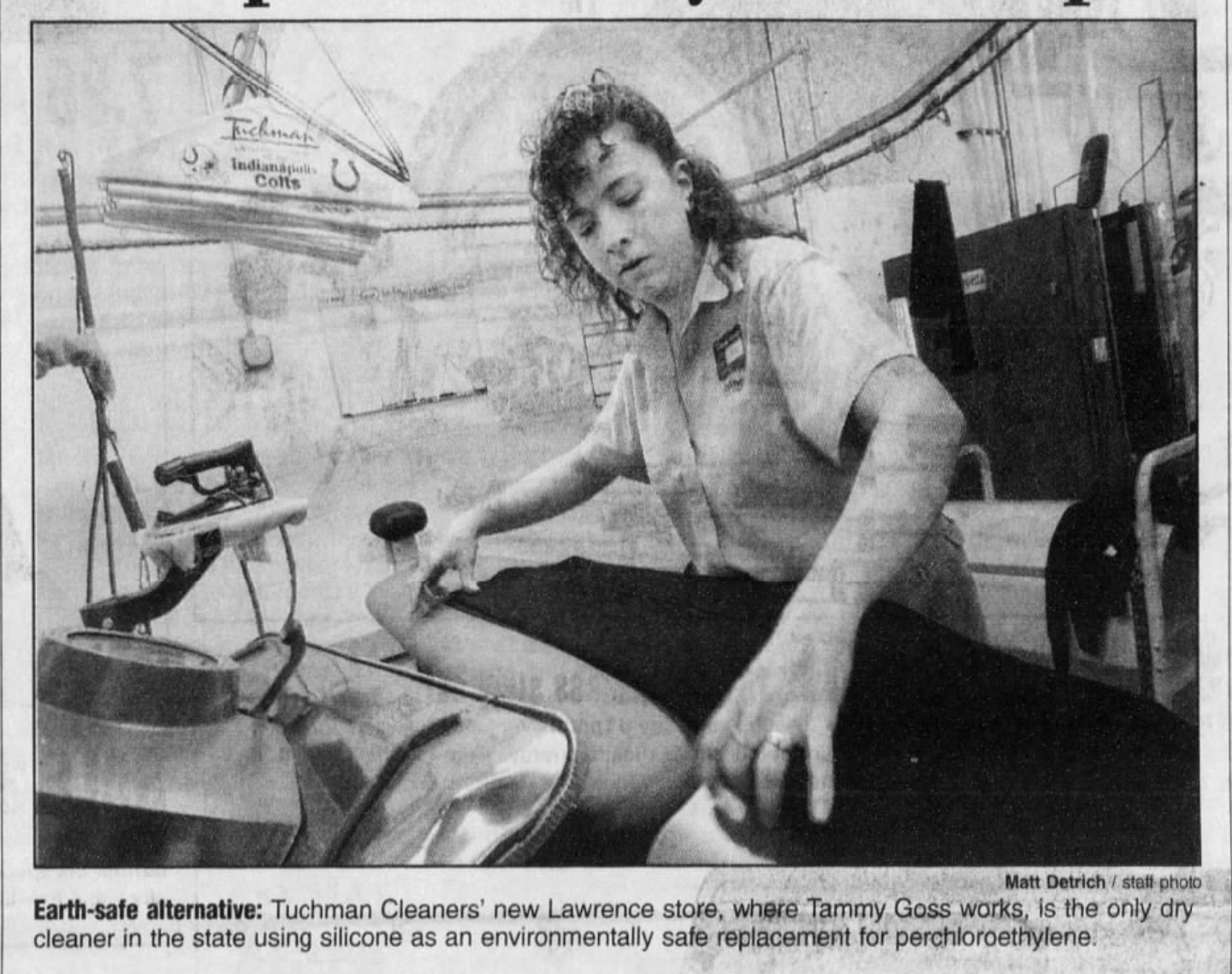Sam Tuchman, a Jewish immigrant born in Lublin, Poland, arrived in Indianapolis with his wife Pearl and daughter Rose in 1912. He began working as a tailor at the , where after 18 months he was promoted to foreman. In 1916, Tuchman left Kahn’s to open a one-room tailor shop at the corner of 23rd and Illinois streets, later adding cleaning services.

That same year, Tuchman’s son Fred was born. Fred Tuchman joined his father’s tailoring and cleaning business when he was 17 years old, in 1934. The elder Tuchman’s succession plan called for handing the family business to Fred, his eldest son. Although Fred assumed the presidency of the cleaning business, Sam’s other son Sidney took over in 1946, after being discharged from the U.S. Army Signal Corps in 1945. The brothers officially named the business Tuchman Cleaners.
As president, Sidney Tuchman expanded the company’s footprint by opening dry-cleaning routes in new neighborhoods and opening stores elsewhere in the state. Still growing, the company moved its main plant and offices from its 35th Street and College Avenue location to 44th Street and Allisonville Road in 1953.

This plant became the site of Tuchman Cleaners’ annual art show. Tuchman staged the inaugural event with the Indianapolis Art League (see ) on April 10-11, 1954. The sidewalk art show featured 500 paintings of Art League painters, who sold their wares on the sidewalk outside Tuchman’s plant.
Some artists sketched charcoal portraits of visitors on the spot. Public interest in the art show grew so intense that Tuchman utilized the interior of the plant to expand the art show on the second day of the event. The Art League planned to use the proceeds from the art show toward the future development of a civic art center. In 1961, the National Institute of Drycleaners awarded Sid Tuchman a commendation certificate for Tuchman Cleaners’ work supporting the art community of Indianapolis. The art show continued each year until 1962.
In 1964, Tuchman Cleaners relocated to a much larger facility at 4401 North Keystone Avenue. By 1965, Tuchman Cleaners had a constellation of satellite stores all based around the North Keystone Avenue plant. In 1966, Fred Tuchman sold his interest in the company to his brother Sidney.
The 1960s and early 1970s proved a tumultuous time for Tuchman Cleaners because of the popularity of new synthetic materials, namely polyester. Clothes that were formerly drycleaned instead became machine washable. The textile innovation forced many dry cleaning businesses to close, but Sidney Tuchman viewed it as an opportunity to innovate. He entered the uniform rental business by renting work uniforms to companies, with the caveat that the uniforms had to be cleaned at a Tuchman Cleaners location. The move saved the company from collapse.

Tuchman then forged partnerships with others in the dry-cleaning industry to form Apparelmaster. The latter group found success in deploying Tuchman’s work uniform rental strategy on a larger scale. In 1982, the success of Apparelmaster drew the attention of the Johnson Group, a British-based dry-cleaning company, which purchased Tuchman Cleaners. Sidney Tuchman remained as chief executive officer until his retirement in 1987.
The Johnson Group sold Tuchman Cleaners to Phoenix-based National Dry Cleaners circa 1984. In 2008, Houston-based U.S. Drycleaning Services Corp. purchased the chain of dry cleaners after National Dry Cleaners filed for bankruptcy. The U.S. dry cleaning industry continued to decline, from $11 billion in revenue in 2010 to $9 billion in 2017. During this period, the number of Tuchman Cleaners outlets decreased from 35 cleaners to only 24.
Numerous factors led to Tuchman Cleaners’ woes. Lifestyle, workplace, and fashion changes eroded the need to professionally clean clothing. Improvement in home laundry equipment and environmental concerns also factored into the decline in the industry. The Environmental Protection Agency embarked on an emergency chemical spill cleanup effort after the leveling of Tuchman Cleaners’ Keystone Avenue facility led to the contamination of the surrounding area’s groundwater and soil from dangerous chemicals in 2013.
The environmental damage coupled with an uptick in new competitors increased Tuchman Cleaners’ troubles. The firm abruptly shuttered its remaining 11 locations in July 2019, leaving customers scrambling to locate items they had left for dry cleaning.

Help improve this entry
Contribute information, offer corrections, suggest images.
You can also recommend new entries related to this topic.




